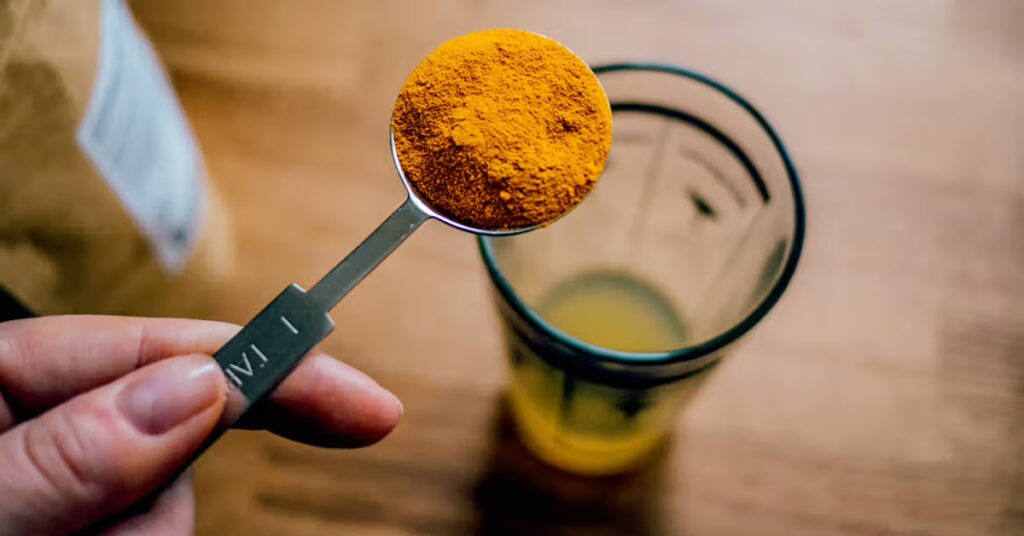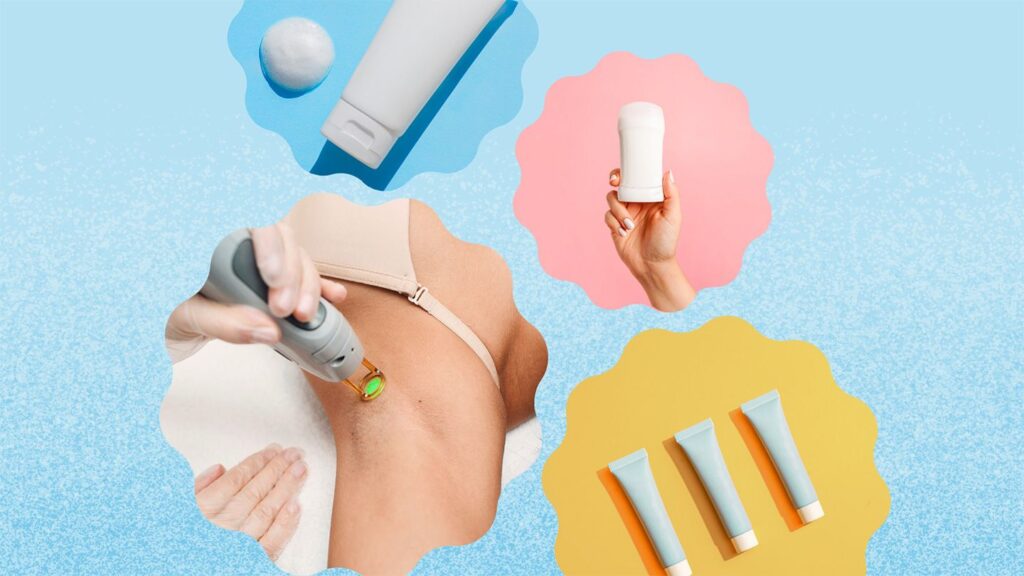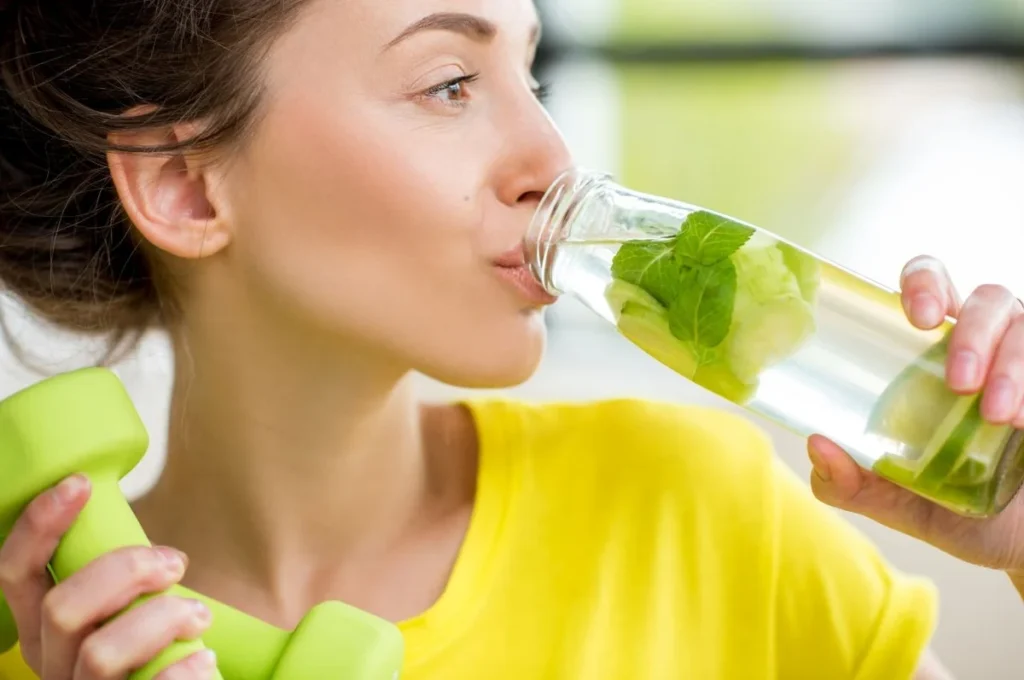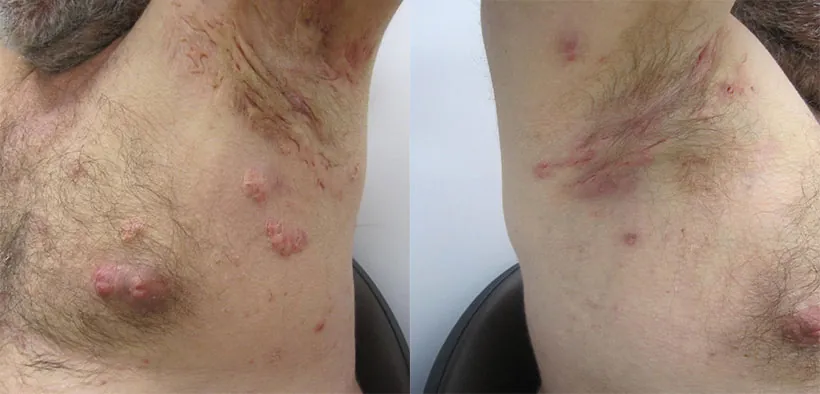If you’re searching for natural treatments for hidradenitis suppurativa, you’re likely seeking gentle, accessible ways to ease the painful lumps, inflammation, and discomfort caused by this chronic skin condition. While hidradenitis suppurativa (HS) often requires medical care, many natural remedies and lifestyle changes can help reduce symptoms, limit flare-ups, and improve quality of life. This guide explores effective home remedies, dietary strategies, and self-care practices you can safely incorporate alongside prescribed treatments.
What Is Hidradenitis Suppurativa and Why Consider Natural Treatments?
Hidradenitis suppurativa is a chronic inflammatory disease that affects areas of the body where skin rubs together—such as the underarms, groin, and buttocks. It causes painful, swollen lumps that may rupture, leading to drainage, scarring, and decrease in life quality.
Natural treatments for hidradenitis suppurativa aim to:
- Soothe inflammation and pain
- Support wound healing
- Reduce bacterial risk
- Improve overall skin health
- Minimize triggers that can worsen HS flare-ups
While natural approaches alone cannot cure HS, they offer complementary relief and empower you to take control of your condition between medical visits.
Warm Compresses: Simple, Soothing Relief for HS Pain and Inflammation
How Warm Compresses Help
Applying a warm compress to affected areas can:
- Reduce pain by increasing blood flow
- Help lesions drain naturally and hygienically
- Relieve swelling and soothe irritated skin
How to Use a Warm Compress
- Soak a clean washcloth in warm water (not too hot)
- Wring out excess water and gently press on HS lumps for 10-15 minutes
- Repeat several times daily as needed
- Maintain good hygiene before and after application
Warm compresses are a low-risk, effective way to manage flare-up discomfort and support skin healing.
Anti-Inflammatory Natural Ingredients: Turmeric, Aloe Vera, and Honey

Turmeric: Nature’s Powerful Anti-Inflammatory
Turmeric contains curcumin, known for reducing inflammation and fighting bacteria.
- Method: Mix 1 tablespoon turmeric powder with ½ tablespoon coconut oil to make a paste.
- Apply gently on lesions for 10-15 minutes, then rinse with lukewarm water.
- Use cautiously and discontinue if irritation occurs.
Aloe Vera: Cooling and Soothing Benefits
Pure aloe vera gel can calm irritated skin and ease itching.
- Apply fresh or commercial aloe vera gel (free from added chemicals) to affected areas twice daily.
- Its antiseptic properties may support skin repair.
Honey: Natural Antimicrobial and Healing Agent
Raw honey offers antimicrobial effects and helps wounds heal faster.
- Combine honey with turmeric for a topical mask.
- Apply for 15-20 minutes, then gently wash off.
Always use natural, unprocessed honey for best results.
Tea Tree Oil and Neem Oil: Natural Antiseptic Oils for HS
Tea Tree Oil
Tea tree oil possesses antimicrobial and anti-inflammatory qualities. However, it must be diluted before use, as it may cause irritation.
- Mix a few drops with 2 tablespoons of a carrier oil (coconut or jojoba).
- Test a small skin patch first for sensitivity.
- Apply sparingly to clean, dry skin.
Note: Some sources suggest avoiding tea tree oil on broken skin.
Neem Oil
Neem oil has antibacterial properties and may reduce redness and swelling.
- Apply diluted neem oil on lesions using a cotton ball.
- Can be combined with aloe vera or honey for additional benefits.
Zinc: Supplementation and Topical Use to Combat HS
Zinc plays a role in immune function and inflammation mediation. Studies suggest zinc supplements or topical creams may reduce HS severity.
- Oral zinc: Consult your doctor for the right dosage to avoid side effects.
- Topical zinc cream: Made from beeswax, zinc oxide powder, and coconut oil, applied directly to HS spots.
Zinc may be a useful adjunct in reducing lesions and supporting skin health.
Apple Cider Vinegar: Supporting Skin Healing and Bacterial Control
Though apple cider vinegar (ACV) cannot cure HS, it may create an unfriendly environment for bacteria and promote healing.
- Dilute ACV with water (1 part vinegar to 3 parts water).
- Apply lightly with a cotton pad to affected areas.
- Monitor skin closely and stop if irritation develops.
Diet and Lifestyle Adjustments That May Help Manage HS Naturally

Dietary Strategies
Certain foods may trigger HS flare-ups, while others may reduce inflammation:
- Consider reducing:
- Dairy
- Sugar and refined carbohydrates
- Gluten (if sensitive)
- Processed foods and excessive alcohol
- Focus on anti-inflammatory diets:
- Mediterranean diet rich in fruits, vegetables, legumes, and healthy fats
- Plant-based diets emphasize whole, nutrient-dense foods
- Include foods high in:
- Zinc (pumpkin seeds, nuts)
- Vitamin C (citrus fruits, bell peppers)
- Omega-3 fatty acids (flaxseed, chia, walnuts)
Lifestyle Tips
- Wear loose, breathable clothing to reduce friction
- Practice good hygiene but avoid harsh soaps that dry or irritate skin
- Manage stress through relaxation techniques, as stress can worsen HS
- Quit smoking, which is linked to HS severity
- Maintain a healthy weight to reduce skin irritation
When to Avoid Certain Natural Treatments
- Avoid using rubbing alcohol or harsh chemicals that dry and irritate skin.
- Do not attempt to pick or lance HS lumps yourself to prevent infection and scarring.
- Bleach baths may be helpful for some but should only be done under medical supervision due to the risk of irritation.
When to Seek Medical Advice Despite Natural Remedies
Natural treatments can complement but not replace professional care for moderate to severe HS. Consult your healthcare provider if you experience:
- Worsening lesions, spreading infection, or fever
- Significant pain or drainage
- Lesions interfering with daily life
Your doctor may recommend antibiotics, biologics, surgery, or hormone therapy alongside natural care.
The Role of Gut Health and Probiotics in Managing Hidradenitis Suppurativa Naturally
Emerging research suggests that gut health plays a significant role in inflammatory skin conditions like hidradenitis suppurativa (HS). A balanced gut microbiome can help regulate the immune system and reduce systemic inflammation, which may influence HS severity.
How Gut Dysbiosis May Worsen HS Symptoms
An imbalance in gut bacteria, known as dysbiosis, can increase intestinal permeability (“leaky gut”), allowing toxins and pro-inflammatory molecules into the bloodstream. This may trigger or exacerbate inflammation in skin tissues, including those affected by HS.
Incorporating Probiotics to Support HS Management
Probiotics—live beneficial bacteria—may help restore gut balance and improve immune responses.
- Food Sources: Yogurt with live cultures, kefir, sauerkraut, kimchi, miso, and kombucha are excellent natural probiotic sources.
- Supplements: Choose high-quality multi-strain probiotics with at least 10 billion CFUs after consulting a healthcare professional.
- Prebiotics: These are fibers that feed good bacteria. Foods such as garlic, onions, leeks, asparagus, and bananas support probiotic efficacy.
Including probiotics and prebiotics in your diet may help reduce systemic inflammation related to HS.
Natural Anti-Inflammatory Herbs and Supplements for Hidradenitis Suppurativa

Certain herbs and dietary supplements have potent anti-inflammatory properties that may help control HS flare-ups.
Boswellia Serrata (Frankincense)
- Boswellia extract contains compounds that inhibit pro-inflammatory enzymes and cytokines.
- Preliminary studies suggest it may reduce symptoms in inflammatory conditions.
- Available as capsules or topical creams—always follow dosage recommendations.
Omega-3 Fatty Acids (Fish Oil or Plant-Based Alternatives)
- Omega-3 fatty acids block inflammatory pathways and improve skin barrier function.
- Consuming fatty fish (salmon, mackerel) or taking fish oil supplements (1-3 grams daily) can have a significant anti-inflammatory effect.
- Vegan options like flaxseed oil or algal oil provide plant-based omega-3s.
Evening Primrose Oil
- Rich in gamma-linolenic acid (GLA), evening primrose oil may reduce skin inflammation and improve lesion healing.
- Studies on HS are limited but suggest benefits for related inflammatory skin diseases.
- Typical dosage ranges from 500 mg to 1500 mg daily.
Curcumin (Turmeric Extract)
- Curcumin is the active anti-inflammatory component of turmeric.
- Supplement forms are more bioavailable than topical applications and may reduce HS symptoms systemically.
- Should be taken with black pepper extract (piperine) for optimal absorption.
Always consult your healthcare provider before starting any new supplement to avoid interactions with prescription medications.
The Benefits of Stress Management Techniques for Hidradenitis Suppurativa
Stress is a recognized trigger for many chronic inflammatory diseases, including HS. Elevated stress hormones can worsen immune dysregulation, inflammation, and delay wound healing.
Effective Stress Reduction Methods
- Mindfulness Meditation: Practicing mindfulness for 10-20 minutes daily can lower cortisol levels and improve emotional resilience.
- Breathing Exercises: Techniques like diaphragmatic breathing promote relaxation and reduce sympathetic nervous system overactivity.
- Yoga and Tai Chi: Gentle movement combined with focused breathing decreases stress and promotes mind-body balance.
- Regular Physical Activity: Light-to-moderate exercise tailored to your fitness level helps regulate stress hormones.
- Adequate Sleep: Prioritize 7-9 hours of restful sleep to enhance immune function and tissue repair.
Including stress management as part of your HS care routine can reduce flare frequency and severity.
Natural Skin Care Practices to Protect and Support HS-Affected Areas

Maintaining proper skin care hygiene without irritation is crucial when managing hidradenitis suppurativa naturally.
Gentle Cleansing
- Use fragrance-free, antibacterial cleansers with gentle surfactants.
- Avoid harsh soaps or exfoliants that disrupt skin barrier integrity.
- Clean affected areas twice daily with lukewarm water.
Moisturizing and Skin Barrier Restoration
- Regularly apply non-comedogenic, hypoallergenic moisturizers to prevent dryness and cracking.
- Natural options include aloe vera gel, shea butter, or emollients containing ceramides.
Clothing and Friction Reduction
- Wear loose, breathable clothes made from natural fabrics like cotton to minimize friction and sweating.
- Avoid tight seams and synthetic materials that trap moisture.
Wound Care and Dressing Options
- For draining lesions, use clean, absorbent dressings changed frequently to prevent secondary infections.
- Natural leech therapy or honey dressings have been explored anecdotally but require professional oversight.
Sun Exposure and Vitamin D: Their Influence in Hidradenitis Suppurativa Management
Vitamin D plays a critical role in immune modulation and inflammation control, making it relevant for HS sufferers.
Why Vitamin D Matters for HS
- Deficiency is common in people with inflammatory skin diseases.
- Adequate vitamin D levels may decrease cytokine-driven inflammation implicated in HS.
Balancing Sun Exposure Safely
- Aim for 10-20 minutes of sun exposure on arms and legs three times a week, avoiding sunburn.
- Use sunscreen to protect skin after sufficient exposure.
Supplementing Vitamin D
- If tests reveal deficiency, supplementing with vitamin D3 may be advised under medical guidance.
- Maintaining optimal vitamin D can support overall skin health and immune balance.
The Importance of Hydration and Healthy Fluid Balance in Managing Hidradenitis Suppurativa

Staying well-hydrated plays a pivotal yet sometimes overlooked role in skin health and inflammation control, which is crucial for managing hidradenitis suppurativa naturally.
How Proper Hydration Supports HS
- Flushes Toxins: Adequate water intake helps the kidneys eliminate waste products that can exacerbate inflammation.
- Maintains Skin Elasticity: Well-hydrated skin is less prone to cracking, reducing fissures that can become entry points for bacteria.
- Supports Immune Function: Optimal hydration ensures efficient cellular processes necessary for healing and immune defense.
Practical Hydration Tips
- Aim for at least 8 glasses (about 2 liters) of water daily, adjusting for activity level and climate.
- Infuse water with lemon, cucumber, or herbs like mint to enhance flavor and encourage intake.
- Limit diuretics such as caffeine and alcohol that may promote dehydration.
Hydration is a simple but fundamental natural strategy to complement other hidradenitis suppurativa treatments.
Exploring the Potential of Natural Detoxification Practices for Hidradenitis Suppurativa
Chronic inflammatory conditions like HS may benefit from supportive detoxification strategies that reduce overall toxic burden and systemic inflammation.
Detoxification Through Diet: What Works?
- Increase Fiber Intake: Soluble and insoluble fiber promote healthy digestion and regular elimination of toxins.
- Antioxidant-Rich Foods: Blueberries, green tea, walnuts, and dark leafy greens combat oxidative stress, a key contributor to chronic inflammation.
- Support Liver Health: Foods like garlic, turmeric, and cruciferous vegetables (broccoli, kale) enhance detox pathways.
Gentle Detox Methods to Consider
- Epsom Salt Baths: Magnesium sulfate soaks may reduce inflammation and encourage relaxation.
- Dry Brushing: Stimulates lymphatic circulation, potentially aiding immune clearance.
- Sauna Therapy: Promotes sweat-mediated release of environmental toxins—should be used cautiously and discussed with a healthcare professional.
While scientific evidence specific to HS is limited, these methods can support overall wellbeing and may reduce flare frequency.
The Role of Sleep Quality in Natural Management of Hidradenitis Suppurativa
Good quality sleep is essential not only for general health but also for modulating immune responses relevant to HS inflammation and healing.
Why Sleep Matters for HS Management
- Regulates Immune Function: Sleep restores normal cytokine levels, balancing inflammatory and anti-inflammatory factors.
- Supports Skin Repair: During deep sleep phases, tissue repair processes are maximized.
- Stress Reduction: Adequate sleep lowers cortisol, a hormone linked to HS flare-ups.
Tips to Improve Sleep Quality Naturally
- Maintain a consistent sleep schedule, going to bed and waking up at the same times daily.
- Create a calming bedtime routine, avoiding screens and stimulating activities before sleep.
- Ensure the bedroom environment supports restful sleep — cool temperature, darkness, and quiet.
Improving sleep hygiene complements natural treatments in reducing HS’s impact.
Understanding Hormonal Influences on Hidradenitis Suppurativa and Natural Ways to Balance Hormones
Hormones significantly affect HS severity, particularly during puberty, menstrual cycles, pregnancy, and menopause.
Hormone-Related HS Triggers
- Androgen hormones can increase skin oil production and follicular blockage, worsening HS symptoms.
- Fluctuations in estrogen and progesterone influence inflammation and immune activity.
Natural Hormone-Balancing Strategies
- Diet: Incorporate foods rich in phytoestrogens (soy, flaxseeds) to support hormonal balance.
- Maintain a Healthy Weight: Excess adipose tissue produces inflammatory hormones that may worsen HS.
- Adaptogens: Herbs like ashwagandha and maca may support adrenal function and balance stress hormones.
- Avoid Endocrine Disruptors: Limit exposure to hormone-mimicking chemicals found in certain plastics, cosmetics, and pesticides.
Managing hormones naturally requires a holistic approach but can reduce disease severity over time.
The Psychological Impact of Hidradenitis Suppurativa and Natural Support Strategies
HS can profoundly affect mental health, but natural approaches offer meaningful emotional support.
Mental Health Challenges in HS
- Chronic pain and visible lesions may cause anxiety, depression, and social isolation.
- Stress can aggravate inflammation, creating a vicious cycle.
Natural Emotional Wellness Practices
- Cognitive Behavioral Tools: Self-help techniques for stress, anxiety, and low mood.
- Creative Therapies: Art, music, or journaling to express feelings.
- Support Groups: Connecting with others managing HS fosters understanding and community.
- Mindfulness and Meditation: Regular practice reduces reactivity to physical and emotional stressors.
Addressing the emotional aspects of HS naturally improves quality of life and complements physical treatments.
Conclusion
Natural treatments for hidradenitis suppurativa—like warm compresses, turmeric, aloe vera, and dietary changes—can provide much-needed relief from symptoms and help reduce inflammation. These remedies are generally safe to use alongside medical treatments but should be discussed with a healthcare professional to ensure they fit your individual care plan.
